The ruling to impose cremations in Jiangxi Province sparked protests, which the state quickly crushed. Some elderly chose suicides to be buried ahead of reform.
by Wang Yong
Burial of the dead is an ancient tradition in China, where graves are considered to be earthly residences for the souls of the deceased who go on to live in another world. Cremation is uncommon, so inhumation of the dead is of utmost importance for the Chinese, as a popular proverb, “Falling leaves return to their roots,” illustrates.
Regardless, in August last year, the southeastern province of Jiangxi launched a “burial reform,” aimed at replacing burials with cremations, supposedly, to reduce the use of land for graveyards and spending on funerals.
Enforcing the reform, local officials in some rural areas dismantled tombs and confiscated thousands of coffins that people kept at home for their funerals – also a common ritual in preparation for one’s death, especially popular among the older Chinese. In the process, some buried bodies were exhumed and cremated. Despite widespread public outcry, the campaign to implement the burial reform continues throughout the province.
Elderly people commit suicide in desperation
Since March, county-level governments under the jurisdiction of Jiujiang city in the north of Jiangxi started issuing plans for the implementation of the burial reform, demanding to cremate all the diseased starting from May 1. Some governments have set the goal to reach 100 percent cremation rate by the end of 2019.
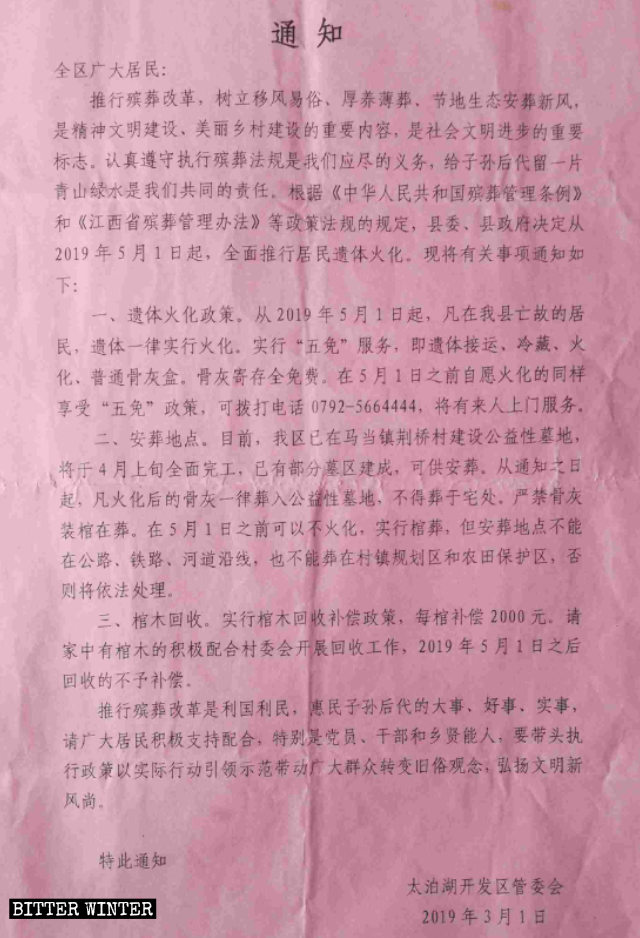
Because of the importance of the long-lived burial tradition for the people and no public information campaigns to explain why and how the reform is implemented, many Jiujiang residents had a hard time accepting cremation. This was especially difficult for the elderly who live in constant fear that they will not have an afterlife. Some who were nearing the end of their lives and did not want to be cremated chose to commit suicide before May 1, in desperate hopes to be buried.
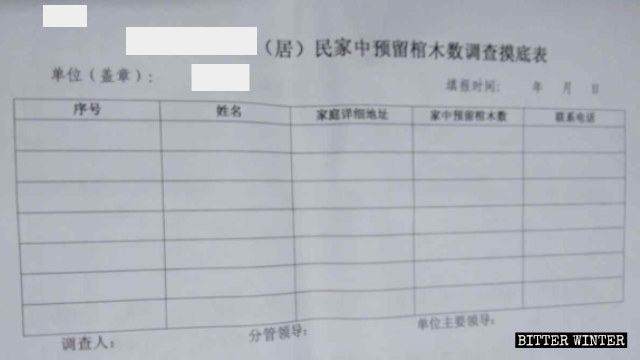
On March 18, an 86-year-old villager in Hukou county under the jurisdiction of Jiujiang city learned that officials were coming the next day to seize the coffin that she had bought for herself. She couldn’t sleep all night, and at 4:00 a.m., she went to her son’s house to tell him that, no matter what, he mustn’t hand over her coffin to officials when they arrive later that day, and left.
After dawn, the son found his mother’s body in a nearby pool.
According to villagers, to be buried after death was of great importance to the woman, and so was her coffin. Even though she was in good health, the woman decided to end her life prematurely hoping to be buried, not cremated, after death.
A similar tragedy occurred in Pengze county. After learning about the burial reform, a local 83-year-old woman drank an entire bottle of baijiu (a fierce Chinese liquor with an alcohol content of 52%) on an empty stomach at home. Her family found the woman in time and took her to the hospital, where she was resuscitated. But her spleen was damaged irreparably.
Most of the patients in the hospital ward were also elderly, who all said that they couldn’t accept the thought of being cremated, a source who was at the hospital at the time told Bitter Winter. Some of them were taken to the hospital for attempting suicide.
“The story of one elderly couple there was extremely sad. The woman ingested wood glue, and the man drank rat poison. Both of them underwent emergency treatment at the hospital. There were also three elderly people who drank poison attempting to kill themselves,” the source said. “The elderly people are in a tragic situation now. The government is driving people to death.”
Government digs up graves
Despite multiple cases of the elderly committing suicide in protest, the authorities continue with the burial reform. This has forced some people to lay their loved ones to rest in secret, attempting to avoid cremation. If the state discovers such cases, police officers are dispatched to dig up graves and snatch corpses that are later forcibly cremated. These actions have caused widespread discontent among the population.
Hu Guiwen, an elderly man from Quanfeng town in Xiushui county, administered by Jiujiang city, passed away on June 11, and his family secretly buried him the same evening. The government learned about this the same day and decided to dig up his remains.
More than 2,000 people spontaneously showed up at the cemetery to guard Mr. Hu’s grave. On June 13, after villagers found out that the government was planning to send over 400 police officers to subdue them, the number of people protecting the grave rose to nearly 10,000. Many came from surrounding villages.
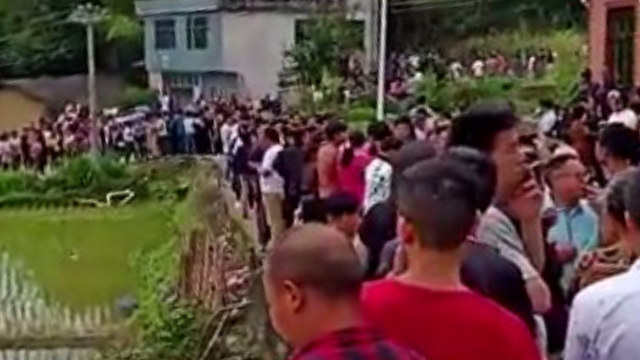
The protesters displayed a banner “Oh, heavens! What is the crime of the deceased? People of Jiangxi, wake up and seek justice for the dead!” to express their dissatisfaction with the government.
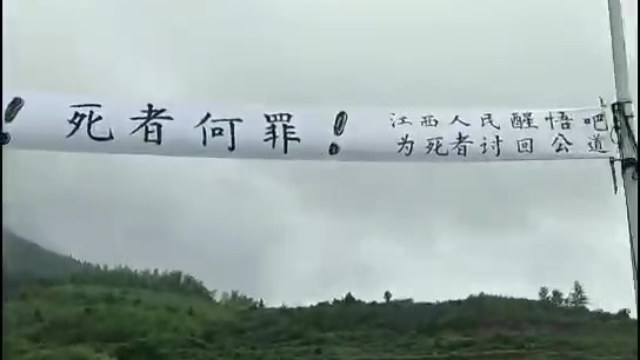
The mayor of Quanfeng town threatened to cremate every deceased person for as long as he remained in office. “Even three-year-old children won’t be spared,” he told the protestors. His words infuriated the public, and that evening, thousands of people broke down the gate to the town government, got inside, and tore up some documents in the office in protest.
Attempting to bring the situation under control, local officials came to negotiate with the protesters. They apologized to the people and promised to allow burials, not to dig up graves or arrest people.
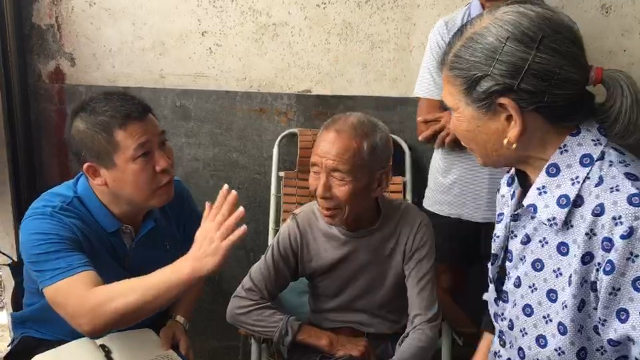
As it turned out, this was just another lie. Soon, special police were dispatched in batches to detain protesters. A villager told Bitter Winter that plainclothes Public Security Bureau officers started coming to the area to arrest people, sometimes at night. Some village residents were so scared that they decided to go away or hide in the homes of their relatives, not daring to return until the situation calmed down.
According to government sources, 30 villagers were arrested in July alone, after the government determined them to be the main “troublemakers” by reviewing surveillance records.
“These evil officials apologize to your face but arrest people in secret. The Communist Party is a ruthless dictatorship,” a resident said indignantly.
During the same time, residents of Beidong village, under the jurisdiction of Bailing town in Xiushui county, protested over the burial reform but were violently crushed by the local police.
Video: The armed police suppressed the residents of Beidong village, under the jurisdiction of Bailing town in Xiushui county, who were protesting against the cremation of the deceased.












